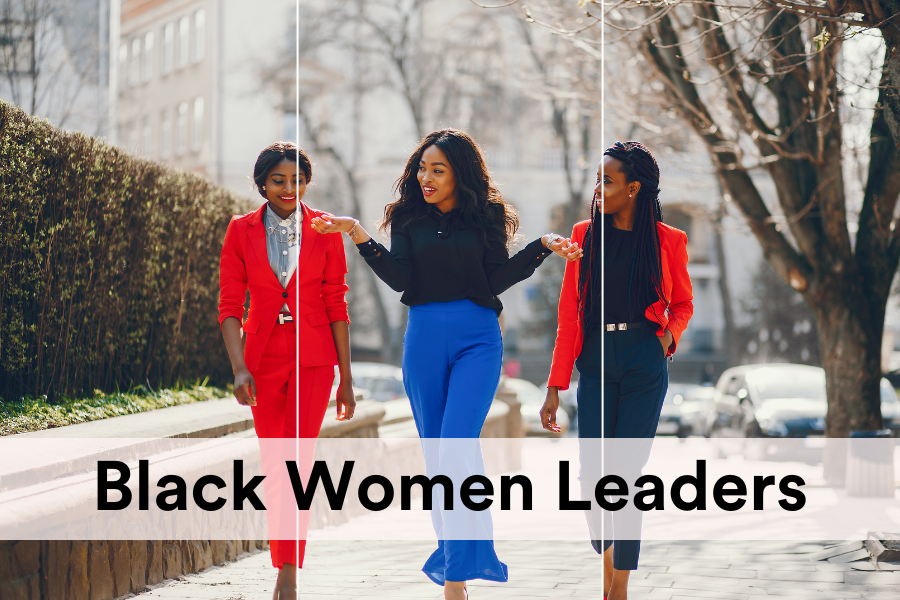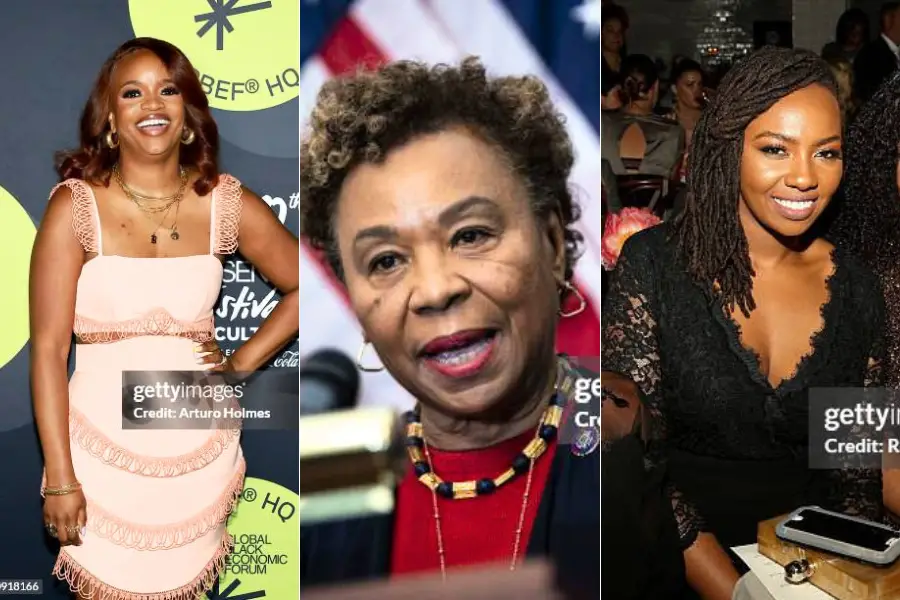In this article, we celebrate the remarkable journeys of Black women leaders who have faced challenges and emerged stronger. Their stories inspire us to embrace self-confidence, fight against discrimination, and advocate for social justice. As we explore their experiences, we highlight key lessons that can empower not only Black women but all aspiring leaders. Together, we can create a more inclusive and equitable future.
Table of Contents

Key Takeaways
- Self-confidence is crucial for effective leadership; reflecting on past successes helps build it.
- Overcoming discrimination requires strong self-advocacy and building supportive relationships.
- Visibility and sharing achievements are essential for gaining recognition and support.
- Mentorship plays a vital role in guiding aspiring leaders and fostering community.
- Active participation in social justice movements is key to driving change and representation.
Empowering Leadership Through Self-Confidence

Reflecting on Past Achievements
To build self-confidence, it’s important to look back at your successes. Remembering moments when you excelled can boost your belief in your abilities. Here are some ways to reflect:
- List your top three achievements.
- Think about challenges you overcame.
- Share your successes with others to reinforce your confidence.
Overcoming Fear and Embracing Challenges
Fear can hold you back, but facing it can lead to growth. Taking risks is essential for leadership. Here are steps to help you:
- Identify what scares you.
- Break down challenges into smaller tasks.
- Celebrate small victories to build momentum.
Building Self-Confidence in Leadership Roles
Building self-confidence is a journey. Here are some strategies:
- Join a program like a virtual small group learning experience to strengthen your leadership skills.
- Seek feedback from trusted colleagues.
- Practice public speaking to enhance your presence.
Confidence is not just about believing in yourself; it’s about taking action despite your fears.
By focusing on these areas, Black women can empower themselves and lead with confidence in their careers.
Overcoming Discrimination in the Workplace
Navigating Racial and Gender Bias
Discrimination in the workplace can be a significant barrier for many Black women. Understanding the challenges of racial and gender bias is crucial. Here are some common forms of bias:
- Stereotyping based on race or gender
- Unequal pay for the same work
- Limited opportunities for advancement
Strategies for Self-Advocacy
To combat discrimination, it’s essential to advocate for yourself. Here are some effective strategies:
- Show Confidence – Believe in your abilities and speak up in meetings.
- Build Relationships – Connect with other Black women and allies for support.
- Embrace Visibility – Share your accomplishments and seek mentorship.
Building Support Networks
Creating a strong support network can help you navigate workplace challenges. Consider:
- Joining professional organizations for Black women.
- Finding mentors who understand your journey.
- Participating in community events to build connections.
Building a supportive network is vital for overcoming obstacles and achieving success.
In summary, overcoming discrimination requires confidence, advocacy, and strong relationships. By addressing these challenges head-on, Black women can pave the way for a more equitable workplace.
Highlight: persistent discrimination
The Power of Visibility and Representation

Embracing Visibility
Visibility is crucial for Black women leaders. When they are seen in leadership roles, it inspires others and creates a pathway for future generations. Representation matters because it shows that success is possible.
Promoting Accomplishments
To promote accomplishments, it’s important to:
- Share success stories in various platforms.
- Celebrate achievements within communities.
- Encourage others to recognize their own potential.
Mentorship and Sponsorship
Mentorship plays a vital role in leadership. Black women leaders can:
- Offer guidance to younger women.
- Create networks that support each other.
- Advocate for opportunities in workplaces.
Representation is not just about being present; it’s about leading and making a difference.

By focusing on visibility and representation, we can empower Black women to take their rightful place in leadership roles, ensuring that their voices are heard and valued.
Inspiring Stories of Black Women Leaders
Profiles of Influential Leaders
Black women leaders have made significant impacts across various fields. Here are a few notable figures:

- Brittany Packnett Cunningham: A powerful voice in education and social justice.
- Barbara Lee: A trailblazer in politics, advocating for equity and justice.
- Opal Tometi: Co-founder of the #BlackLivesMatter movement, promoting activism and awareness.
Lessons from Their Journeys
These leaders teach us valuable lessons:
- Resilience: Overcoming obstacles is part of the journey.
- Advocacy: Speaking up for oneself and others is crucial.
- Community: Building networks of support can amplify voices.
Impact on Their Communities
The influence of these leaders extends beyond their personal achievements. They:
- Inspire future generations to pursue leadership roles.
- Create programs that uplift their communities.
- Advocate for policies that promote equity and justice.
The stories of Black women leaders remind us that when they lead, we all benefit. Their journeys are not just personal triumphs but collective victories that inspire change.
Building Inclusive and Equitable Work Environments
Creating a workplace where everyone feels valued is essential for success. Inclusion is not just a goal; it’s a necessity. Here are some key areas to focus on:
Challenges Faced by Black Women
- Stereotypes: Many Black women face negative stereotypes that can hinder their career growth.
- Microaggressions: Small, often unintentional comments can create a hostile work environment.
- Limited Opportunities: There are fewer chances for advancement in many organizations.
Creating Supportive Spaces
- Encourage Open Dialogue: Create a culture where everyone can share their thoughts without fear.
- Implement Training Programs: Offer training on diversity and inclusion to all employees.
- Recognize Contributions: Celebrate the achievements of all employees, especially those from underrepresented groups.
Promoting Diversity and Inclusion
- Set Clear Goals: Establish measurable objectives for diversity in hiring and promotions.
- Support Employee Resource Groups: Encourage the formation of groups that support various identities.
- Regularly Assess Progress: Use surveys and feedback to evaluate the effectiveness of inclusion efforts.
Building an inclusive workplace is a journey, not a destination. It requires ongoing commitment and action from everyone.
By focusing on these areas, organizations can create a more equitable environment for all employees, especially for Black women who often face unique challenges in the workplace. Implementing 16 innovative equity strategies can help foster inclusion and promote fairness in your organization.
The Role of Black Women in Social Justice Movements
Historical Contributions
Black women have played a crucial role in social justice movements throughout history. Without their leadership, many movements would not have succeeded. For example, women like Rosa Parks, who led the Montgomery Bus Boycott, and Diane Nash, the main organizer of the Nashville sit-ins, were pivotal in shaping the civil rights movement. Their contributions often go unnoticed, but they laid the groundwork for future generations.
Modern-Day Activism
Today, Black women continue to be at the forefront of social justice. They are not just activists; they are also strategists and leaders. Many of the movements we see today, including Black Lives Matter, were founded by Black women. Their voices are essential in advocating for change and fighting against systemic racism and inequality.
Future Directions for Social Change
Looking ahead, it is vital to support and uplift Black women in leadership roles. Here are some ways to do this:
- Invest in their projects and campaigns.
- Amplify their voices in discussions about social justice.
- Create spaces where they can lead and be heard.
Supporting Black women is not just about representation; it’s about ensuring they have the resources and respect to lead effectively.
By recognizing the significant role of Black women in social justice, we can work towards a more equitable future for all.
Leadership Lessons from Prominent Black Women

Key Strategies for Success
- Believe in Yourself: Confidence is key. Trusting your abilities can open doors.
- Build Relationships: Connect with other leaders and allies. Together, we can support each other.
- Embrace Visibility: Don’t shy away from sharing your achievements. Your story matters.
Balancing Personal and Professional Life
Finding balance is crucial. Here are some tips:
- Set clear boundaries between work and home.
- Prioritize self-care to recharge.
- Seek support from friends and family.
Advice for Aspiring Leaders
- Stay Resilient: Challenges will come, but perseverance is essential.
- Seek Mentorship: Learn from those who have walked the path before you.
- Advocate for Yourself: Speak up for your needs and goals in the workplace.
“When Black women lead, we all win.” This powerful statement reminds us of the impact of strong leadership.
In summary, the journey of leadership is filled with lessons. By learning from the experiences of prominent Black women, we can all grow and inspire others. Their stories show us that with determination and support, we can overcome obstacles and achieve greatness.
Explore the powerful lessons in leadership from remarkable Black women who have made a difference. Their stories inspire us to grow and lead with confidence. Ready to take the next step in your journey? Visit our website to discover more resources that can help you thrive!
Conclusion
In closing, the stories of Black women leaders remind us of the strength and courage that come from overcoming challenges. These women have shown us that confidence is not just about believing in oneself but also about lifting others as we rise. Their journeys inspire us to break barriers and create spaces where everyone can thrive. As we continue to support and celebrate Black women in leadership, we pave the way for a brighter future for all. Let us carry their lessons forward and strive to lead with confidence and compassion.
Frequently Asked Questions
What does the blog Black Woman Great focus on?
The blog Black Woman Great is all about helping and supporting Black women grow in various areas like money, travel, food, business, and self-care.
Why is self-confidence important for Black women leaders?
Self-confidence helps Black women leaders face challenges and achieve their goals, making it crucial for their success.
How can Black women overcome discrimination at work?
They can overcome discrimination by believing in themselves, speaking up, and building relationships with other supportive individuals.
What can visibility do for Black women in leadership?
Being visible allows Black women to promote their achievements and connect with mentors who can help them grow.
Why is mentorship important for Black women?
Mentorship provides guidance and support, helping Black women navigate their careers and overcome obstacles.
How can workplaces be more inclusive for Black women?
Workplaces can be more inclusive by creating supportive environments, promoting diversity, and ensuring that all voices are valued.

